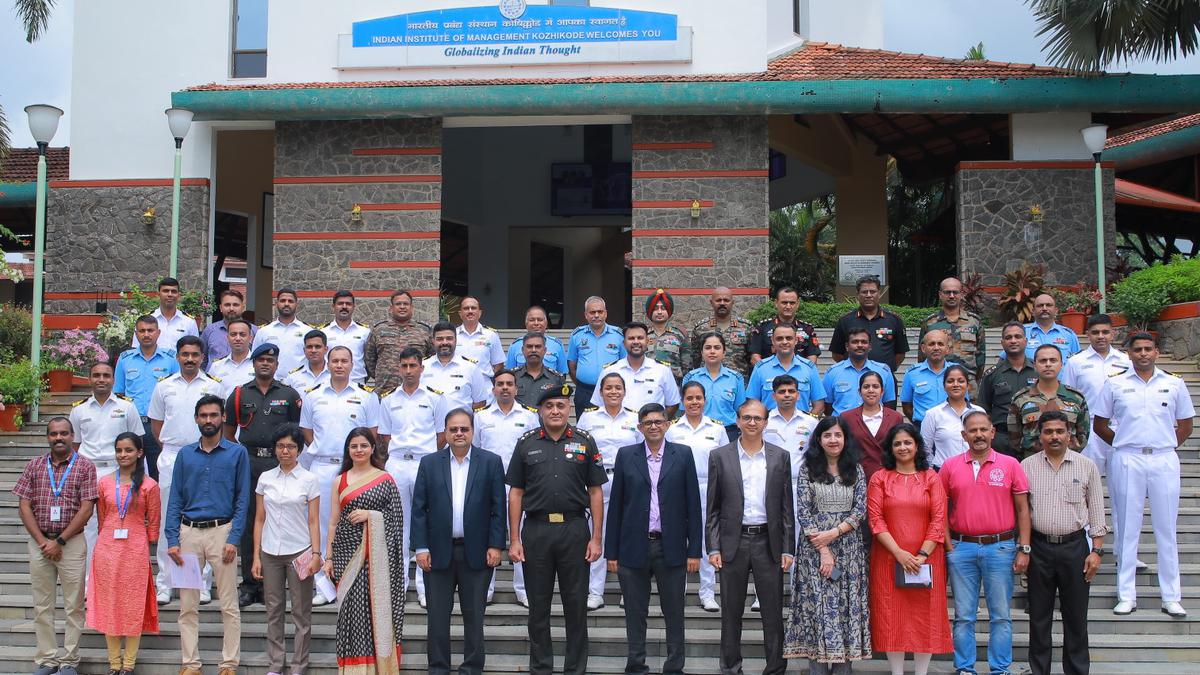
Defence officers join IIMK’s business management programme
The Hindu
Programme to equip officers with skills to adapt to rapidly changing global business landscape. Curriculum includes topics such as Management Psychology, Managerial Accounting, and Strategic Management fundamentals
The Indian Institute of Management, Kozhikode welcomed its first batch of Defence Service officers to its campus recently.
A total of 44 armed forces officers, including five women, who will be transitioning from defence services to corporate life, will be trained by the expert faculty at IIMK as part of the six-month-long certificate course in ‘Business Management Programme for Defence Personnel’.
The cohort consists of 12 officers representing the Indian Army, 22 from the Indian Navy, and 10 officers from the Indian Air Force. The batch was inducted in the presence of Brigadier Rohit Mehta, ADG, Directorate General Resettlement (DGR), Ministry of Defence and Prof. Debashis Chatterjee, Director IIMK.
Addressing the incoming pioneer batch, Prof. Chatterjee said it was a proud moment for IIMK to play a prominent role in nation building by training the ‘best of the best’ in India. He shared the significance of imbibing the 3 ‘P’s — purpose, performance, and possibilities — with the transitioning defence officers for being not just ‘best in the world, but best for the world’.
Laying stress on the learning that will happen, he added, “This IIMK programme will provide a unique platform for defence professionals to develop their management acumen and broaden their understanding of the rapidly changing global business landscape. It is designed to enrich participants’ knowledge, foster cross-industry collaboration, improve the employability of participants in the prevailing business landscape, and strengthen their leadership and decision-making skills.”
In his address, Brig. Mehta said that he was intrigued by IIMK’s institutional mission of ‘Globalising Indian Thought’, and the participants should internalise this message in their learnings to help adapt to the impending changes in their work environment. He encouraged the officers to optimally use traits such as discipline, frugality, selflessness, and courage, picked over the years from their stint in the defence services, to make a competent transition to corporate life. He also identified three critical qualities — creativity, innovation, and risk-taking, being central to their preparedness for taking on a world changing at a rapid pace.













